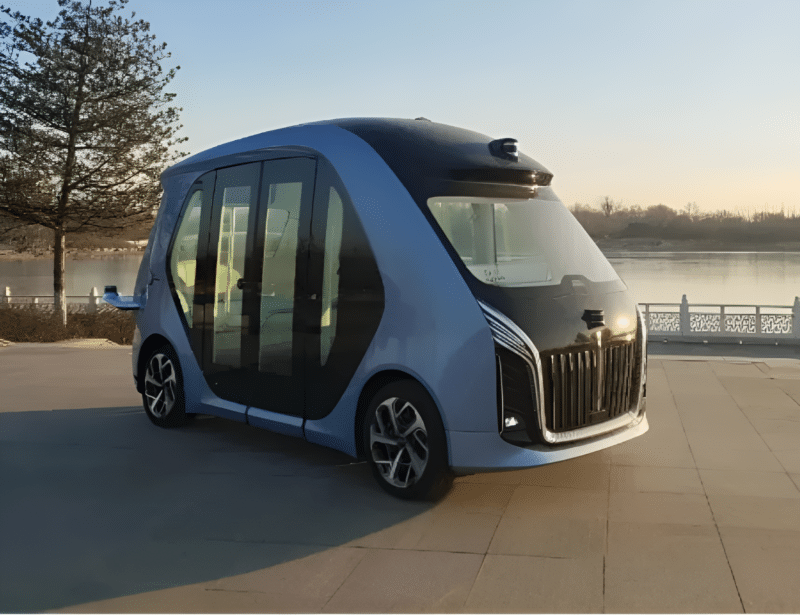Hongqi self-driving mini-bus spied in China
Recently, self-driving cars made several headlines in China as several major Chinese cities are launching public testing of driverless vehicles such as in Shanghai and Shenzhen as well as Baidu’s Robotaxi. And now, Hongqi’s autonomous mini-bus also joined the mix and was spied on Chinese streets.

In addition to driverless mini-bus, Chinese media also reported that Hongqi is conducting Robotaxi testing. It is worth mentioning that earlier on July 10, Hongqi announced that it received the green light for road testing of its third-generation Level 4 Robotaxi from the Beijing Intelligent & Connected Vehicle Policy Pilot Zone. Hongqi also noted that its Robotaxi has completed more than 100,000 km of autonomous driving public road tests in the Pilot Zone.



The front of the mini-bus retains Hongqi’s family design of a chrome straight waterfall grille. From the side, the mini-bus has two doors and a lidar.

Inside, the interior has numerous metal bars, a red button (could be an emergency stop button), sofa seats, and a ceiling screen.
Global Market Insights data shows that the global autonomous vehicle market size was valued at USD 2 trillion in 2023, while China’s autonomous vehicle market size was valued at 8.01 billion USD in 2023, according to Renub Research.
As the automotive industry shifts from electrification to intelligence, autonomous driving technology has also jumped on this wagon to grow rapidly in China, from Level 2+ assisted driving gradually becoming standard to unmanned delivery vehicles, unmanned sanitation vehicles, and Level 4 Robotaxi.

At the same time, some humans are afraid that driverless vehicles will take over their jobs and some are not confident about the safety aspect of driverless vehicles. For example, in May this year, people in Wuhan, China, complained on the Internet that Baidu’s LuoBoKuaiPao Robotaxi are causing traffic jams, saying that the vehicles exhibited unusual behaviors such as stopping in the middle of the road for no reason, stagnating when turning, and driving too slowly during peak hours in the morning and evening, which brought a lot of inconvenience to people’s travel.
As driverless vehicles are becoming common in our society, it will be interesting to see how they will integrate into our lives.



